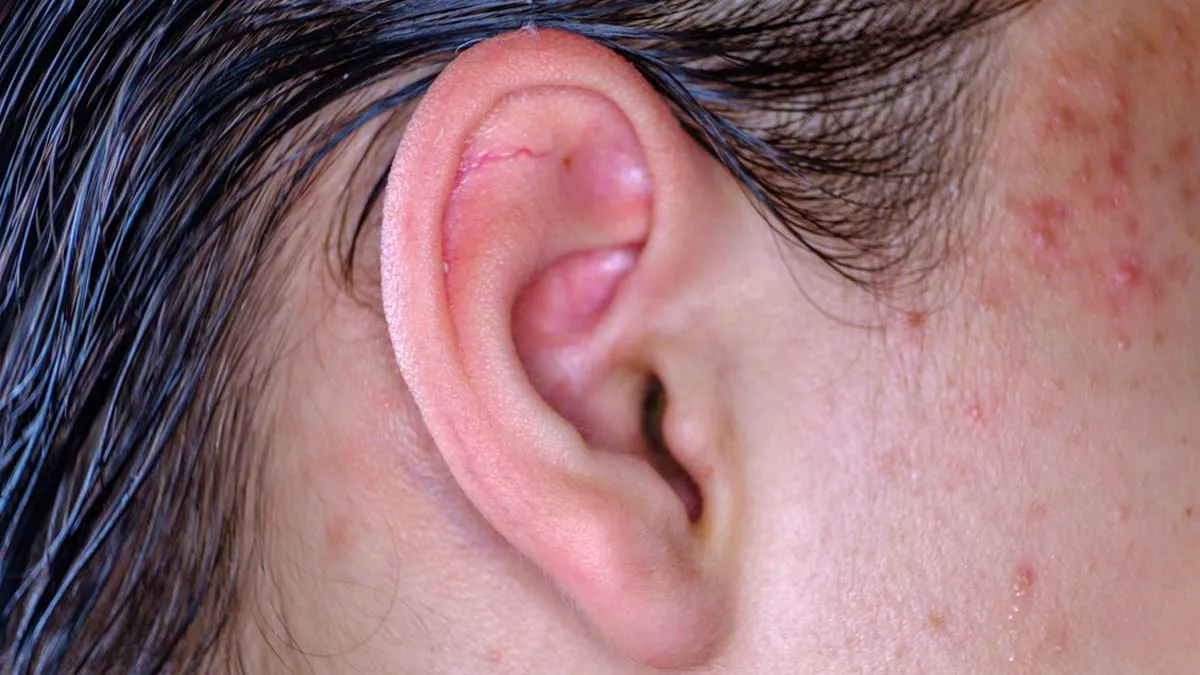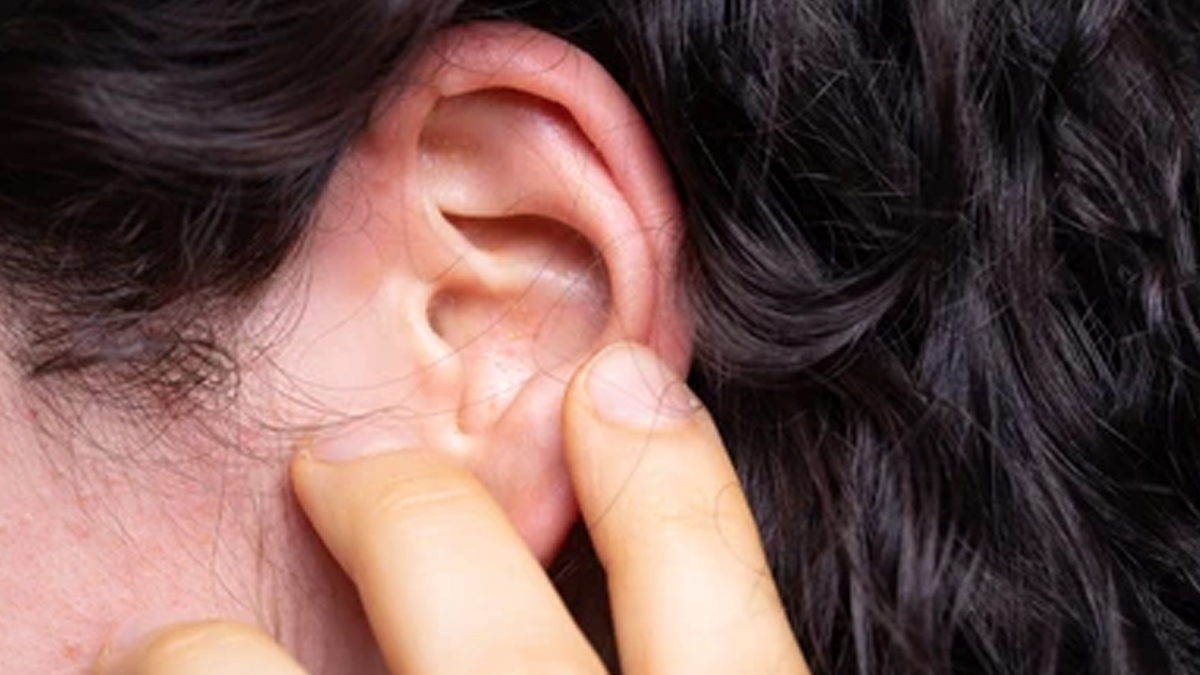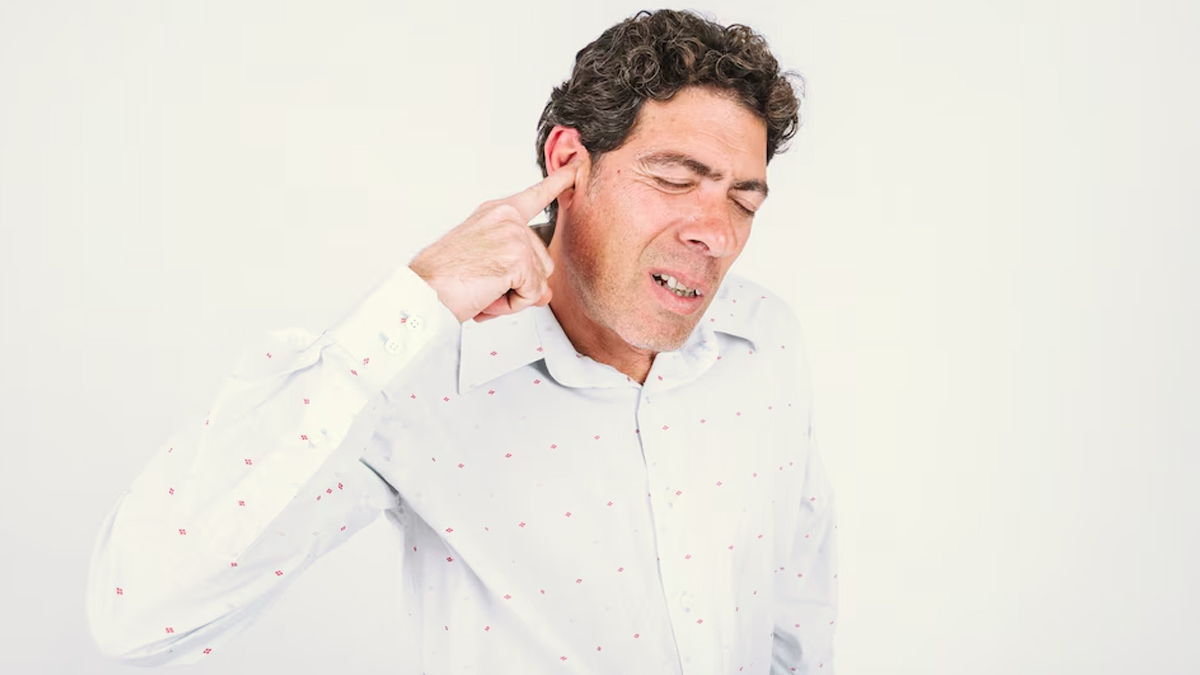
Pimples can appear in unexpected places, and the ear is no exception. Imagine settling into your favourite song with your earbuds, only to feel a sharp, uncomfortable pain in your ear. You reach up, and there it is a tiny but incredibly annoying pimple. While pimples are common on the face, back, and chest, finding one lurking inside your ear can be both surprising and frustrating. But why do these pesky blemishes form in such an unusual spot? More importantly, how can you treat them without making things worse?
Table of Content:-
Why Do Ear Pimples Form?
To understand this, OnlyMyHealth team interacted with Dr Niti Gaur, MD, Board-Certified Dermatologist and Founder of Citrine Clinic, Gurgaon. She explains, “Pimples or acne occur when a pore becomes clogged with dead skin cells and sebum, which is the natural oil that protects the skin and keeps it moist.” Since the ear has oil glands, skin cells, and hair follicles, it is just as susceptible to acne as other parts of the body.

Several factors contribute to clogged pores in the ear, including:
- Dirty or dusty environments – Dust particles can settle in the ear and mix with oil, leading to breakouts.
- Excess oil production – If the glands in your ear produce too much sebum, it can clog pores.
- Sharing earbuds or headphones – This can introduce bacteria and germs into your ear.
- Using unclean earbuds or headphones – Dirty surfaces can transfer bacteria, increasing the risk of pimples.
- Inserting fingers or objects into the ear – Touching your ear with unwashed hands or inserting objects can spread bacteria.
- Exposure to contaminated water – “Contact with unclean water may lead to conditions like swimmer’s ear or external otitis, which can result in pimples,” says Dr Gaur.
- Stress and hormonal changes – Increased stress levels and hormonal fluctuations, such as during puberty, can trigger acne.
- Dirty or infected ear piercings – Poor hygiene around piercings can lead to bacterial infections that cause pimples.
- Wearing hats or helmets for long periods – Prolonged use of headgear can trap sweat and bacteria around the ears.
Also read: Ear Pain Due To Cold? Try These Home Remedies To Get Rid Of The Pain
How to Treat Ear Pimples
Since the skin inside and around the ear is sensitive, treating pimples in this area requires gentle care. Dr Gaur recommends several treatment options that are safe and effective:

- Apply a warm compress – “A warm compress or heat pad may reduce inflammation and irritation,” she advises. It also helps open up clogged pores, allowing the pimple to heal faster.
- Use mild cleansing agents – Cleansing with witch hazel or alcohol can prevent infections and reduce oil buildup.
- Topical treatments – Over-the-counter acne treatments, such as benzoyl peroxide, salicylic acid, and azelaic acid, can help dry out pimples and reduce inflammation.
- Prescription medications – “For severe cases, topical or systemic drugs derived from vitamin A may be required,” says Dr Gaur. Dermatologists may also prescribe antibiotic creams or oral antibiotics like doxycycline or minocycline in case of bacterial infections. However, she warns that “this type of treatment is becoming less common, as cases of antibiotic-resistant bacteria are on the rise.”
- Natural remedies – Some studies suggest that tea tree oil may help reduce acne severity. However, Dr Gaur notes, “More research is needed to verify the efficacy and safety of this oil as a treatment for acne.”
Also read: 5 Home Remedies To Cure Pain That Occurs Due To Ear Infection
How to Prevent Pimples in the Ear

Prevention is key when it comes to ear acne. Dr Gaur recommends maintaining proper ear hygiene to avoid clogged pores and bacterial buildup. Here’s how:
- Wash your ears regularly – Cleaning the ears gently with mild soap and water can reduce excess oil and dead skin cells.
- Avoid inserting objects into the ear – Refrain from using cotton swabs, fingers, or other objects that can irritate the skin.
- Disinfect earbuds and headphones – Regularly clean these accessories to prevent bacterial transfer.
- Avoid swimming in dirty water – Contaminated water can lead to infections and acne.
- Limit the use of headgear – Avoid wearing helmets or hats for extended periods, especially in hot weather.
- Manage stress levels – Stress can trigger hormonal imbalances, which may contribute to acne breakouts.
Conclusion
Pimples in the ear can be annoying and even painful, but they are usually harmless. By understanding their causes and following Dr Niti Gaur’s expert advice on treatment and prevention, you can keep your ears clear and healthy. If you experience persistent or painful pimples in your ear, consulting a dermatologist is the best course of action.
Also watch this video
How we keep this article up to date:
We work with experts and keep a close eye on the latest in health and wellness. Whenever there is a new research or helpful information, we update our articles with accurate and useful advice.
Current Version